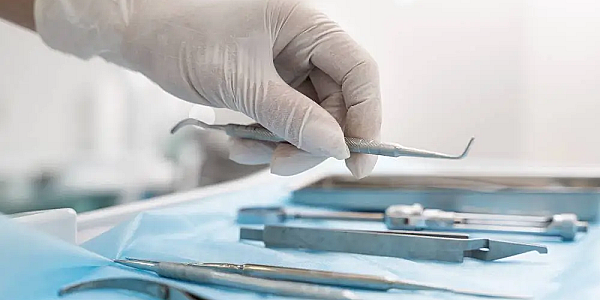What is dento-alveolar surgery and what are the most popular interventions in this field
Oral surgery (also called dento-alveolar surgery) is an extremely important branch of dentistry and includes a series of interventions necessary for the effective treatment of serious oral conditions. Usually, they cannot be solved by minimally invasive methods. Among the most common works in this field are: extraction of wisdom teeth, canines or included molars, treatment of abscesses, cysts, sinus lifting procedure.
About what each of the procedures entails and what are the cases in which dento-alveolar surgery is necessary, you will find out in the following lines.
Extraction of wisdom teeth and teeth
The most common treatment in dento-alveolar surgery is tooth extraction. Such a procedure is used in cases when the tooth cannot be saved by another method, such as these situations: it grows in an abnormal position, leads to crowding of other teeth, has insufficient space to erupt, can cause infections recurrent or represent a high predisposition for caries. Similarly, reasons for tooth extractions can be orthodontic, for example: space is needed to correct the bite.
How does the wisdom tooth extraction operation take place?
The intervention can be done in the dental office, but also in the hospital - when the risk of complications is higher. First, investigations will be done, such as x-rays or a tomography. During the operation, initially, the patient will be given local anesthesia, and in more complex cases - a total one. Then, with the help of dental instruments, the tooth will be extracted.
After the intervention, the patient will feel discomfort and pain, which may last for several days. In order for them to be bearable, the specialists of Dentarbre dental office in Bucharest prescribe analgesics and anti-inflammatories as well as antibiotics in more complex cases.
Treatment of wisdom tooth
Wisdom teeth are the last to appear, but they usually cause a lot of headaches. Common problems caused by them are: wrong bite, crowding of other teeth, pain caused by insufficient space for eruption, cavities and deep infections.
Since the gums represent only some rudiments, their role in mastication is not decisive. Thus, an extraction treatment is most frequently used. If patients decide to keep their wisdom teeth, however, they should be aware that caries treatment is often needed, to which these molars are more prone than the rest of the teeth.
Other situations in which surgical intervention is performed
There are many interventions, more or less invasive, that are part of dento-alveolar surgery. In addition to the above, the following interventions are often performed in dental clinics:
external and internal sinus lifting – for bone augmentation, before inserting a dental implant; gingivectomy, gingivoplasty – to solve complications from periodontal diseases; cystectomies – to remove maxillary cysts; drainage of abscesses – to clean up the infectious focus; apical resections – to save the infected tooth; emergency treatment – in case of maxillo-mandibular fractures.
Only the dentist can confirm if you need dento-alveolar surgery.
If you have found yourself in such a situation, the most important thing is not to be afraid and entrust yourself to the hands of a specialist who works in ideal conditions, with state-of-the-art materials, and has all the necessary knowledge to carry out the procedure. Good health to you!


